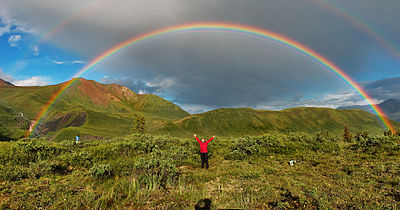If birds fly in the right formation, they only need to use half the energy: even in nature, teamwork results in laziness
In regards to why painters prefer waif models: "they dont want to paint fat people because it would take up too much paint"
If opportunity doesn't knock, build a door
Be who you are and say what you feel, because those who mind dont matter and those that matter wont mind.-Dr. Seuss
"I am not afraid of death, I just dont want to be there when it happens" - Woody Allen
Everybody is a genius. But if you judge a fish by its ability to climb a tree, it will live its whole life believing that it is stupid" Albert Einstein
"There are only two ways to live your life. One is as though nothing is a miracle. the other is as though everything is a miracle" Albert Einstein
"In the depths of winter I finally learned there was in me an invincible summer" Albert Camus
Dont sweat the small stuff
"Be not simply good, be good for something"
If your crush doesnt like you, go to Soviet Russia. In Russia, crush LIKES you!
"Knowing is not enough; We must apply. Willing is not enough; we must do" -Goethe
"And by the way, everything in life is writable about if you have the outgoing guts to do it, and the imagination to improvise. The worst enemy to creativity is self-doubt. -Sylvia Plath
Thursday, June 9, 2011
Wednesday, June 8, 2011
Greetings and Congrats!!
Thank you all for writing such creative essay answers. For instance, I didnt know that with no moon, we'd lose (or enhance) the tilt of the planet. I'm learning from you even now!

Congratulations to you all. I will miss you.
Here's the collective wisdom of 1st period:
“There’s no such thing as an ordinary human” - the doctor
Listen to your heart, there’s nothing else you can do
what is love, baby dont hurt me, dont hurt me no more
If you go in search of honey, you can expect to encounter bees
If the grass is greener on the other side, you can bet the water bill is higher
Be nice to people. They outnumber you 6.5 million to 1
If you are going through hell, keep going -winston Churchill
Whatever you do, do it as well as you can
Ask yourself this question” will this matter a year from now? -Richard Carlson
In questions of science, the authority of a thousand is not worth the humble reasoning of a single individual - Galileo Galilie
We cannot direct the wind, but we can adjust the sails -unknown
To the well organized mind, death is but the next great adventure-Albus Dumbledore
It does not do to dwell on dreams and forget to live. -Albus Dumbledore
As long as there are tests, there will be prayer in schools
Keep your words soft and sweet, just in case you have to eat them.
There will always be someone who comes later than you. Except when they don't. So be on time.
“That's the way the cookie crumbles...” Bruce Almighty
#winning this @%#$...” charlie Sheen
Be confident in who you are and let your freak flag wave! people will like you!
never be satisfied with what you’ve accomplished. the instant you’re satisfied is the instant you’ve admitted that you’re done getting better
A good listener is not only popular everywhere, but after a while he knows something
Always keep a part of you that never grows up
You really only discover your strengths in times of weakness
Stressing over a project or paper isn't worth it because in the long run, you probably wont even remember it
Procrastination is not the answer
Always have a goal in mind.
Congratulations to you all. I will miss you.
Here's the collective wisdom of 1st period:
“There’s no such thing as an ordinary human” - the doctor
Listen to your heart, there’s nothing else you can do
what is love, baby dont hurt me, dont hurt me no more
If you go in search of honey, you can expect to encounter bees
If the grass is greener on the other side, you can bet the water bill is higher
Be nice to people. They outnumber you 6.5 million to 1
If you are going through hell, keep going -winston Churchill
Whatever you do, do it as well as you can
Ask yourself this question” will this matter a year from now? -Richard Carlson
In questions of science, the authority of a thousand is not worth the humble reasoning of a single individual - Galileo Galilie
We cannot direct the wind, but we can adjust the sails -unknown
To the well organized mind, death is but the next great adventure-Albus Dumbledore
It does not do to dwell on dreams and forget to live. -Albus Dumbledore
As long as there are tests, there will be prayer in schools
Keep your words soft and sweet, just in case you have to eat them.
There will always be someone who comes later than you. Except when they don't. So be on time.
“That's the way the cookie crumbles...” Bruce Almighty
#winning this @%#$...” charlie Sheen
Be confident in who you are and let your freak flag wave! people will like you!
never be satisfied with what you’ve accomplished. the instant you’re satisfied is the instant you’ve admitted that you’re done getting better
A good listener is not only popular everywhere, but after a while he knows something
Always keep a part of you that never grows up
You really only discover your strengths in times of weakness
Stressing over a project or paper isn't worth it because in the long run, you probably wont even remember it
Procrastination is not the answer
Always have a goal in mind.
Friday, May 27, 2011
Add-on optional assignment:
Class,
Share with me ay words of wisdom you have learned in your time. You can write them on the assignment you turn into me. I will take the stuff you share and post it on my blog.
Here's two of my favorites:
Best piece of advice I ever got: never lose your sense of humor
Favorite saying: A ship is safest at bay, but that is not what ships are made for.

Share with me ay words of wisdom you have learned in your time. You can write them on the assignment you turn into me. I will take the stuff you share and post it on my blog.
Here's two of my favorites:
Best piece of advice I ever got: never lose your sense of humor
Favorite saying: A ship is safest at bay, but that is not what ships are made for.

Wednesday, May 25, 2011
Last assignment!!!!!
Choose one of the following questions and turn in your thoughtful, original answer by your last day.
This will count as your final, which is awesome because its easy!
Question 1: If earth's axis spun perfectly up and down, how would life be different? (explain 5 biological examples)

Question 2: If there were no moon, how would life on our planet been different? (explain 5 biological examples)

Question 3: If life were discovered on another planet in another solar system, most of what we've learned would be useless. What ideas would still apply? (Explain three biological examples)

Once you've done this, congratulations! You are now done with IB Biology
U 1 :-)
This will count as your final, which is awesome because its easy!
Question 1: If earth's axis spun perfectly up and down, how would life be different? (explain 5 biological examples)

Question 2: If there were no moon, how would life on our planet been different? (explain 5 biological examples)

Question 3: If life were discovered on another planet in another solar system, most of what we've learned would be useless. What ideas would still apply? (Explain three biological examples)

Once you've done this, congratulations! You are now done with IB Biology
U 1 :-)
Wednesday, May 18, 2011
Monday, May 16, 2011
The Draws!!!!
Here they are. Get your pencils out:
1. Draw and label a diagram of the ultrastructure of Escherichia coli (E. coli) as an example of a prokaryote. (2.2.1)
2. Draw and label a diagram of the ultrastructure of a liver cell as an example of an animal cell.(2.3.1)
3. Draw and label a diagram to show the structure of membranes. The diagram should show the
phospholipid bilayer, cholesterol, glycoproteins, integral AND peripheral proteins. (2.4.1)
4. Draw and label water molecules to show their polarity and hydrogen bond formation. (3.1.4)
4. Draw and label water molecules to show their polarity and hydrogen bond formation. (3.1.4)
5. Draw and label a diagram of the carbon cycle to show the processes involved (5.2.1)
6. Draw and label a graph showing a sigmoid (S-shaped) population growth curve. (5.3.2)
7. Draw and label a diagram of the digestive system. Include the mouth, esophagus, stomach, small intestine, large intestine, anus, liver, pancreas gall bladder. (6.1.4)
6. Draw and label a graph showing a sigmoid (S-shaped) population growth curve. (5.3.2)
7. Draw and label a diagram of the digestive system. Include the mouth, esophagus, stomach, small intestine, large intestine, anus, liver, pancreas gall bladder. (6.1.4)
8. Draw and label a diagram of the heart showing the four chambers, associated blood vessels, valves, and the route of blood through the heart. (6.2.1)
9. Draw and label a diagram of the ventilation system, including trachea, lungs, bronchi, bronchioles alveoli with details (6.4.4)
10. Draw and label the structure of a motor neuron, include; dendrites, cell body with nucleus, axon, myelin sheath, nodes of Ranvier, motor end plates (6.5.2)
11. Draw and label diagrams of the adult male reproductive systems (6.6.1)
12. Draw and label diagrams of the female reproductive systems (6.6.1)
13. Draw and label the structure of a peptide bond between two amino acids. (7.4.5)
14. Draw and label the structure of a mitochondrion as seen in electron micrographs (8.1.3)
15. Draw and label the structure of a chloroplast as seen in electron micrographs (8.2.1)
16. Draw and label plan diagrams to show the distribution of tissues in the stem and leaf of a dicotyledonous plant (9.1.1)
17. Draw and label the structure of a dicotyledonous animal-pollinated flower. Limit the diagram to sepal, petal, anther, filament, stigma, style, ovary (9.3.1)
18. Draw and label the external and internal structure of a named dicotyledonous seed (9.3.3)
19. Draw and label a diagram to show the structure of a sarcomere, including Z lines, actin filaments, myosin filaments with heads, the resultant light and dark bands. (11.2.6)
20. Draw and label the structure of the kidney. Include the cortex, medulla, pelvis, ureter, renal blood vessels (11.3.2)
21. Draw and label the structure of a mature sperm and egg. (11.4.6)
22. Draw and label a reflex arc for a pain withdrawal reflex, including the spinal cord and its spinal nerves, the receptor cell, sensory neuron, relay neuron, motor neuron effector. (E.1.3)
9. Draw and label a diagram of the ventilation system, including trachea, lungs, bronchi, bronchioles alveoli with details (6.4.4)
10. Draw and label the structure of a motor neuron, include; dendrites, cell body with nucleus, axon, myelin sheath, nodes of Ranvier, motor end plates (6.5.2)
11. Draw and label diagrams of the adult male reproductive systems (6.6.1)
12. Draw and label diagrams of the female reproductive systems (6.6.1)
13. Draw and label the structure of a peptide bond between two amino acids. (7.4.5)
14. Draw and label the structure of a mitochondrion as seen in electron micrographs (8.1.3)
15. Draw and label the structure of a chloroplast as seen in electron micrographs (8.2.1)
16. Draw and label plan diagrams to show the distribution of tissues in the stem and leaf of a dicotyledonous plant (9.1.1)
17. Draw and label the structure of a dicotyledonous animal-pollinated flower. Limit the diagram to sepal, petal, anther, filament, stigma, style, ovary (9.3.1)
18. Draw and label the external and internal structure of a named dicotyledonous seed (9.3.3)
19. Draw and label a diagram to show the structure of a sarcomere, including Z lines, actin filaments, myosin filaments with heads, the resultant light and dark bands. (11.2.6)
20. Draw and label the structure of the kidney. Include the cortex, medulla, pelvis, ureter, renal blood vessels (11.3.2)
21. Draw and label the structure of a mature sperm and egg. (11.4.6)
22. Draw and label a reflex arc for a pain withdrawal reflex, including the spinal cord and its spinal nerves, the receptor cell, sensory neuron, relay neuron, motor neuron effector. (E.1.3)
Friday, May 13, 2011
Happy Biology weekend!!!
Hello all,
Our goals for this weekend are to learn about the heart (statements 6.2.1 to 6.2.4)
.
Here's a link to the animation I used in class about muscle contraction. I hope you find it to be a useful review.
Our goals for this weekend are to learn about the heart (statements 6.2.1 to 6.2.4)
.
Here's a link to the animation I used in class about muscle contraction. I hope you find it to be a useful review.
 |
| Kei$ha says learning IB Biology makes you famous! |
Wednesday, May 11, 2011
Tuesday, May 10, 2011
Muscles and kidneys!
Hello gang!
Tonight's assignment should be easier to do than last night's readings.
1. Watch this video on how a sarcomere contracts. From this you should know:
a. what defines a sarcomere
b. the two main proteins in a sarcomere
c. What it means if a sarcomere is closed
d. Which of the proteins is active when the sarcomere is closing.
In addition, there are two remaining ideas from the assessment statements RE kidneys:
1. How do the levels of protein, glucose, and urea compare in the:
a. blood plasma
b. glomerulus filtrate
c. urine
2. the role of alpha and beta cells in the pancreas RE to insulin and glucagon
Tonight's assignment should be easier to do than last night's readings.
1. Watch this video on how a sarcomere contracts. From this you should know:
a. what defines a sarcomere
b. the two main proteins in a sarcomere
c. What it means if a sarcomere is closed
d. Which of the proteins is active when the sarcomere is closing.
In addition, there are two remaining ideas from the assessment statements RE kidneys:
1. How do the levels of protein, glucose, and urea compare in the:
a. blood plasma
b. glomerulus filtrate
c. urine
2. the role of alpha and beta cells in the pancreas RE to insulin and glucagon
Monday, May 9, 2011
Muscles!!
Class,
Please review the basics of how a muscle cell is organized. This includes Myofibrils, Sarcoplasmic reticullum, nuclei, and the various bands from a sarcolemma. We will be reviewing it in class, but here's a pretty good site. Start at paragraph 5 "a closer look at muscle anatomy shows..."
You can then look at the section on sliding filament theory.
Thanks.

Please review the basics of how a muscle cell is organized. This includes Myofibrils, Sarcoplasmic reticullum, nuclei, and the various bands from a sarcolemma. We will be reviewing it in class, but here's a pretty good site. Start at paragraph 5 "a closer look at muscle anatomy shows..."
You can then look at the section on sliding filament theory.
Thanks.

Friday, May 6, 2011
Weekend Biology fun!!

1. You can finish the take home test, if not done.
2. Diabetes assignent: read page 1008 in our textbook. Pay particular attention to the diagram on page 1008. After having done this, you should be able to:
a. tell the difference between type 1 (insulin) and type 2 (lifestyle) diabetes
b. explain the role of both insulin and glucagon
c. tell why untreated diabetics have glucose in their urine
 |
| I have diabetes, too |
Thursday, May 5, 2011
Kidneys kidneys and more kidneys!
Cool way to end the week: Dissection! Tomorrow we will be looking at the gross anatomy of the kidney.
Homework for tonight: please do pages 280-281 in your orange book, related to kidney function.

Homework for tonight: please do pages 280-281 in your orange book, related to kidney function.

Wednesday, May 4, 2011
Kidneys!!!
At this point we are done with plants. In class we reviewed three things abotu plant roots:
1. How plants absorb h2o (transpiration pull)
2. How they ACTIVELY bring in ions at the roots
3. How they work with fungi.
Then we starter kidneys!
Here's the site to watch and ENJOY!!! Try your hand at the three question quiz, too

Here's another good animation to help you understand.
By the way, the plant quiz deadline has been moved to MONDAY from FRIDAY.
1. How plants absorb h2o (transpiration pull)
2. How they ACTIVELY bring in ions at the roots
3. How they work with fungi.
Then we starter kidneys!
Here's the site to watch and ENJOY!!! Try your hand at the three question quiz, too

Here's another good animation to help you understand.
By the way, the plant quiz deadline has been moved to MONDAY from FRIDAY.
Monday, May 2, 2011
Plants plants plants!
Hello all and good luck with your high stakes testing!
Today in class we reviewed how flowers have evolved to manipulate organisms into pollinating.
We also reviewd Pr ---> Pfr light cycles (see poinsettia question below).
Homework: General review.
Tomorrow I will give a take home quiz on plants. It will be on tubes (xylem and phloem) flowers, seeds, and leaves. The quiz is due on Friday. Extras can be found by the blue assessment packs in room 232.
Good luck and I'll see you when I see you.
Today in class we reviewed how flowers have evolved to manipulate organisms into pollinating.
We also reviewd Pr ---> Pfr light cycles (see poinsettia question below).
Homework: General review.
Tomorrow I will give a take home quiz on plants. It will be on tubes (xylem and phloem) flowers, seeds, and leaves. The quiz is due on Friday. Extras can be found by the blue assessment packs in room 232.
Good luck and I'll see you when I see you.

Friday, April 29, 2011
Weekend assignment


 Hello class. For Friday's class you should have read pages 763-764 on seed growth. remember, the diagram on 764 is more important to us than the vocab on 763.
Hello class. For Friday's class you should have read pages 763-764 on seed growth. remember, the diagram on 764 is more important to us than the vocab on 763.Over the weekend, I'd like you to learn about roots. This site is a pretty good one for learning about movement of water and minerals into the roots. Its more than just passive absorption!
You are welcome to use this site, or click for Biology. the assessments you will be doing are 9.2.2 and 9.2.3.
 For periods 1 and 8: A night watchman reads the paper while in the bathroom of the greenhouse. because he's alone and its 2:00AM, he leaves the door open. That year none of the greenhouse's poinsettias bloomed. Why?
For periods 1 and 8: A night watchman reads the paper while in the bathroom of the greenhouse. because he's alone and its 2:00AM, he leaves the door open. That year none of the greenhouse's poinsettias bloomed. Why?
Wednesday, April 27, 2011
Tonight's homework
Hello class,
There are two assignments tonight.
1. do pages 367-368 in the orange book (this is assessment 9.3.6)
2. This time, actually read pages 844-848 in our book, please.

I'll quickwrite you about it tomorrow :-)
There are two assignments tonight.
1. do pages 367-368 in the orange book (this is assessment 9.3.6)
2. This time, actually read pages 844-848 in our book, please.

I'll quickwrite you about it tomorrow :-)
Tuesday, April 26, 2011
Pollination homework
Monday, April 25, 2011
Flower parts!
Class,
Please spend tonight learning about flower parts:
Sepal
Petal
Anther
Filament
Stigma
Style
Ovary
Thursday, April 21, 2011
Friday's assignment!
Hello class. Hope you're having a nice Easter/3 day weekend! The only thing I want you to do this weekend is take care of assessment statements 9.1.7 and 9.2.8 about plant hormones
.
9.1.7 -Explain the role of auxin in phototropism as an example of the control of plant growth.
9.2.8- Abscisic hormone and guard cells
.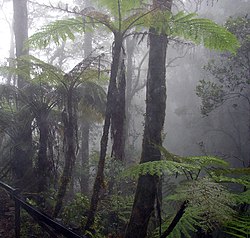
.
9.1.7 -Explain the role of auxin in phototropism as an example of the control of plant growth.
9.2.8- Abscisic hormone and guard cells
.

Monday, April 18, 2011
Review for the quiz
Class,
MAJOR MODIFICATION!!!!!!
TOMORROW'S FOCUS WILL BE PRIMARILY ON PHOTOSYNTHESIS. (THE 8.2 ASSESSMENTS). I WILL REDUCE THE PLANT STRUCTURE QUESTIONS TO ONLY A FEW. I WILL TEST YOU LATER IN GREATER DETAIL. ON THEM. FOCUS MAINLY ON 8.2s)
things to look over for tomorrow's quiz:
8.2 assessments about photosynthesis
very little on the following:
9.1.1, 9.1.2, 9.1.3 on dicot leaves
9.1.5 and 9.1.6 on meristems
5.5.3 on plant kingdom divisions
MAJOR MODIFICATION!!!!!!
TOMORROW'S FOCUS WILL BE PRIMARILY ON PHOTOSYNTHESIS. (THE 8.2 ASSESSMENTS). I WILL REDUCE THE PLANT STRUCTURE QUESTIONS TO ONLY A FEW. I WILL TEST YOU LATER IN GREATER DETAIL. ON THEM. FOCUS MAINLY ON 8.2s)
things to look over for tomorrow's quiz:
8.2 assessments about photosynthesis
very little on the following:
9.1.1, 9.1.2, 9.1.3 on dicot leaves
9.1.5 and 9.1.6 on meristems
5.5.3 on plant kingdom divisions
Thursday, April 7, 2011
Complex Photosynthesis the easy way!

Hello class,
My son is still sick so this is how we'll learn about photosynthesis today.
1. This first video is of the Light reaction ONLY!!!!!! Disregard what it says about ATP being produced in photosynthesis. This is the LIGHT REACTION ONLY!!! Dont worry about the electron carrieres, either. Just Photosystems 2 and 1 and the products, reactants.
Now press this link and watch.
2. So now we have this pile of ATP and NADPH + H. Lets make some sugar!!! The light independent reaction happens in the stroma of a chloroplast. Watch and enjoy the magic! (By the way, the answers are there from the green funbook question about # of carbons)
3. Overview of the Light independent reaction. Although it is simple, I like it because it helps us to keep track of the reactants. Enjoy!
Important take home of these videos: everything made in the light reaction is used in the light independent reaction (except oxygen, of course).
Really makes you rethink salad, huh!

PS. Homework: learn statement 6.4.4 , do orange funbook pages 336, 343, any other review you want.
Tuesday, April 5, 2011
Classwork update:
Monday, March 28, 2011
Social organisms and behavior
Class,
Here' s an excellent radiolab that explores the role of "good" in the biological world. The bee workers are incapable of reproducing, and they are truly half of the mother (unfertilized eggs). Therefor, it is TOTALLY worth it for them to die in hopes of saving the queen.

By the way, remember to learn assessment statement E.6.4 tonight. Check out click4biology.com
Here' s an excellent radiolab that explores the role of "good" in the biological world. The bee workers are incapable of reproducing, and they are truly half of the mother (unfertilized eggs). Therefor, it is TOTALLY worth it for them to die in hopes of saving the queen.

By the way, remember to learn assessment statement E.6.4 tonight. Check out click4biology.com
Friday, March 11, 2011
Prepare for design rubric: BUGS!!!!
Hello class,
Your assignment for the weekend: Learn about Armadillidium (pill bugs). I want oyu to know thier kingdom and phyllum. Learn about their habitat and food choices. Learn about lifespan and mating habits. Learn anything you can find.
I will quiz you on this on Monday.
This is leading up to another IB rubric lab. Next week you will design a lab to investigate taxis or kinesis in Armadillidium. After spring break, you will be doing this lab!! (yeah!). To prep you for this, you may want to look at the click for biology assessments E.3.2. (no humidity test, however.)
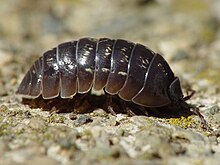
Your assignment for the weekend: Learn about Armadillidium (pill bugs). I want oyu to know thier kingdom and phyllum. Learn about their habitat and food choices. Learn about lifespan and mating habits. Learn anything you can find.
I will quiz you on this on Monday.
This is leading up to another IB rubric lab. Next week you will design a lab to investigate taxis or kinesis in Armadillidium. After spring break, you will be doing this lab!! (yeah!). To prep you for this, you may want to look at the click for biology assessments E.3.2. (no humidity test, however.)

Thursday, March 3, 2011
vision and other cool stuff
Class, I'd like you to investigate blind spots. this link is a coo little activity that I think you'll enjoy. The explanation on wikipedia is a bit thin, but the picture is very helpful.
In addition, please do pages 297-298 in your orange workbook. oops...I mean funbook!
Here's a link to that way cool site I used in class on Thursday in case you want to check it out.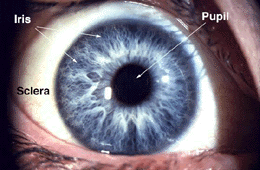
In addition, please do pages 297-298 in your orange workbook. oops...I mean funbook!
Here's a link to that way cool site I used in class on Thursday in case you want to check it out.

Wednesday, February 23, 2011
technology and your brain
The Washington Post published an article about how GPS is affecting your brain's growth. I think you'll find it interesting.
Links we used in class:
radiolab show "lost and found" we listened to section one, but the entire show is excellent (as usual)
TED talk: neuroanatomist with stroke
By the way, this is a hippocampus next to a seahorse (the hippocampus was named this because it was thought to look like a seahorse. You decide....)
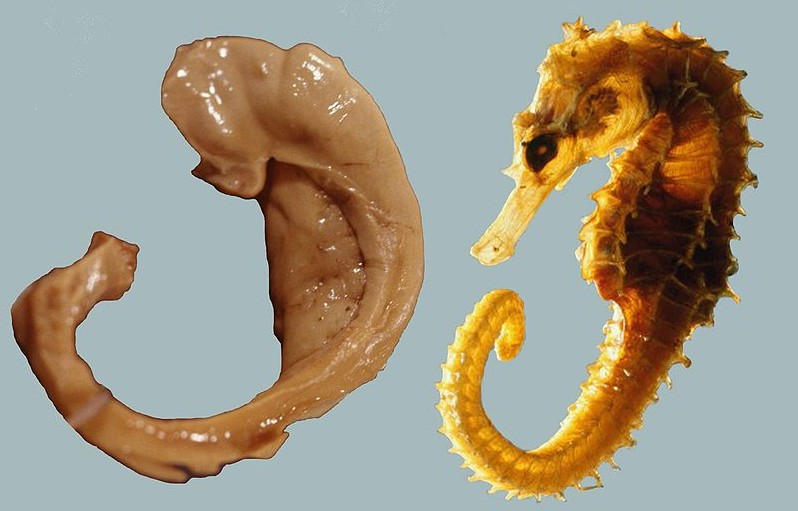
Links we used in class:
radiolab show "lost and found" we listened to section one, but the entire show is excellent (as usual)
TED talk: neuroanatomist with stroke
By the way, this is a hippocampus next to a seahorse (the hippocampus was named this because it was thought to look like a seahorse. You decide....)
Friday, February 11, 2011
brains!!!!
pituitary gland

cerebellum
Hello class,
Please learn the parts of the brain:
cerebrum (4 lobes)
cerebellum (arbor vita)
medulla oblongata
hypothalamus
pons
optic chiasm
Here's a great site to help. Please read about fMRIs also (on this same site-scanning the brain)
Wednesday, February 9, 2011
radiolab link
Here's the radiolab that we listened to yesterday. The section about dopamine and gambling starts at 28:40 and lasts for 13 minutes. It also nicely reviews the role of Dopamine. Enjoy
Thursday, February 3, 2011
Sub plans for Friday 2-4
Hello class, Here's the assessment statements.
First: IB lab will be due on Wednesday of this coming week. Call it a snow day extension.
E.4.4 List three examples of excitatory and three examples of inhibitory psychoactive drugs.
What better way to investigate this than by observing drug-addled partiers. Check out this site, if you dare! The red terms can be viewed directly on this site. (crystal meth works like amphetamines) (THC = marijuana).
First: IB lab will be due on Wednesday of this coming week. Call it a snow day extension.
E.4.4 List three examples of excitatory and three examples of inhibitory psychoactive drugs.
• Excitatory drugs: nicotine, cocaine and amphetamines
• Inhibitory drugs: benzodiazepines, alcohol and tetrahydrocannabinol (THC).
E.4.5 Explain the effects in terms of their action at synapses in
the brain.of
the brain.of
THC and Cocaine
I'd like you to read the rest of section 45.3 on cocaine and nicotine, also.
Monday, January 31, 2011
In class fun!!!
Hello gang,
Here's our goals for today:
1. goto this site and go through the animation on action and resting potentials
2. Draw 4 slide images and record magnifications of each:
a. giant multipolar neurons (high power)
b. motor end plates (high power)
c. spinal cord slice (lowest power lens, dark field illumination)
d. myelinated axons (you need to finds this on the web)
Have fun!!
Here's our goals for today:
1. goto this site and go through the animation on action and resting potentials
2. Draw 4 slide images and record magnifications of each:
a. giant multipolar neurons (high power)
b. motor end plates (high power)
c. spinal cord slice (lowest power lens, dark field illumination)
d. myelinated axons (you need to finds this on the web)
Have fun!!
Wednesday, January 26, 2011
Guidelines for IB respiration lab
Class,
Please look this over and make sure your work is the highest quality you can produce. remember, the due date is Friday Feb 4th.
Design:
1. Introduction: Include scientific name
-Respiration background
-problem statement (with reason for testing)
2. variables list: Independent, dependent, other
other variables--things that could alter your experiment, but you kept controlled.
3. Procedure: numbered steps or bullet points.
-explain how you set the sensors. (No-out-of box set-ups)
Data:
1. include units
2. Name graph (do not name it by the axes with vs. between them)
3. Axes double labeled
4. Brief explanation of what graph shows.
5. Estimate the error (or read it off sensor info)
Conclusion:
1. JUSTIFY your conclusion
2. Evaluate your errors (rank them by impact)
3. For every error, suggest an improvement.
4. Separate your conclusion from your evaluation
Please look this over and make sure your work is the highest quality you can produce. remember, the due date is Friday Feb 4th.
Design:
1. Introduction: Include scientific name
-Respiration background
-problem statement (with reason for testing)
2. variables list: Independent, dependent, other
other variables--things that could alter your experiment, but you kept controlled.
3. Procedure: numbered steps or bullet points.
-explain how you set the sensors. (No-out-of box set-ups)
Data:
1. include units
2. Name graph (do not name it by the axes with vs. between them)
3. Axes double labeled
4. Brief explanation of what graph shows.
5. Estimate the error (or read it off sensor info)
Conclusion:
1. JUSTIFY your conclusion
2. Evaluate your errors (rank them by impact)
3. For every error, suggest an improvement.
4. Separate your conclusion from your evaluation
Wednesday, January 19, 2011
Homework for Wednesday 1-19
Hello class!
Tonight's homework is to finish the chart on the front board.
Also, know the exact location where each of these events occur in Eukaryotic cells.
Reminder: Respiration quiz Friday!
Tonight's homework is to finish the chart on the front board.
Stuff produced NADH FADH2 ATP CO2
Glycolysis
Acetyl-CoA production
Kreb's cycle (1 turn)
Also, know the exact location where each of these events occur in Eukaryotic cells.
Reminder: Respiration quiz Friday!
Friday, January 7, 2011
3rd period data set for weekend experiment
3rd period class, here's your bromothymol blue set-up.
- plant (elodea) + blue solution + darkness
- plant + yellow solution + light
- plant (elodea) + yellow solution + darkness
- plant + blue solution + light
- plant + water + light
- plant + water + dark
- snail tube + blue solution
Subscribe to:
Posts (Atom)


